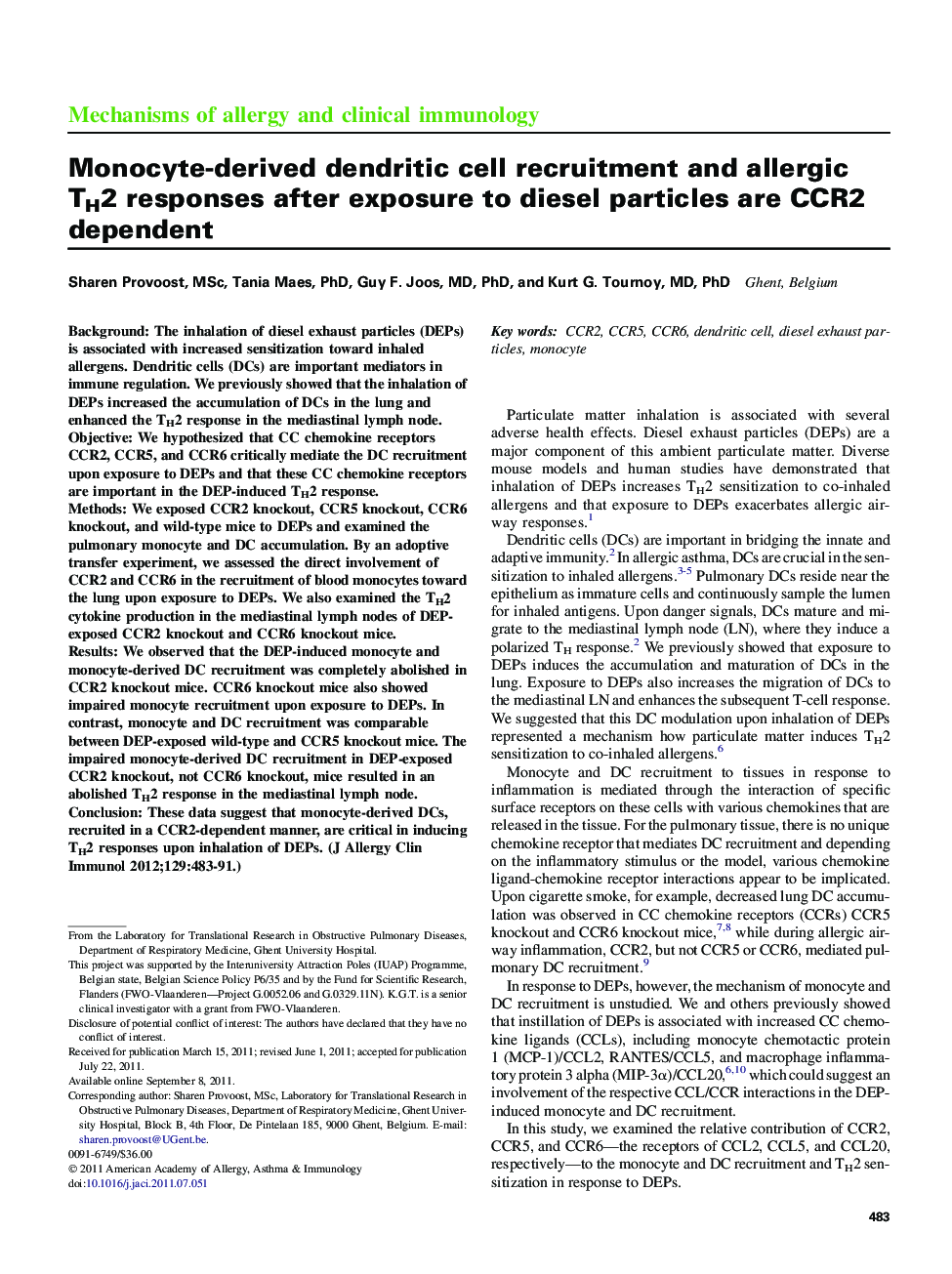| Article ID | Journal | Published Year | Pages | File Type |
|---|---|---|---|---|
| 3199132 | Journal of Allergy and Clinical Immunology | 2012 | 9 Pages |
BackgroundThe inhalation of diesel exhaust particles (DEPs) is associated with increased sensitization toward inhaled allergens. Dendritic cells (DCs) are important mediators in immune regulation. We previously showed that the inhalation of DEPs increased the accumulation of DCs in the lung and enhanced the TH2 response in the mediastinal lymph node.ObjectiveWe hypothesized that CC chemokine receptors CCR2, CCR5, and CCR6 critically mediate the DC recruitment upon exposure to DEPs and that these CC chemokine receptors are important in the DEP-induced TH2 response.MethodsWe exposed CCR2 knockout, CCR5 knockout, CCR6 knockout, and wild-type mice to DEPs and examined the pulmonary monocyte and DC accumulation. By an adoptive transfer experiment, we assessed the direct involvement of CCR2 and CCR6 in the recruitment of blood monocytes toward the lung upon exposure to DEPs. We also examined the TH2 cytokine production in the mediastinal lymph nodes of DEP-exposed CCR2 knockout and CCR6 knockout mice.ResultsWe observed that the DEP-induced monocyte and monocyte-derived DC recruitment was completely abolished in CCR2 knockout mice. CCR6 knockout mice also showed impaired monocyte recruitment upon exposure to DEPs. In contrast, monocyte and DC recruitment was comparable between DEP-exposed wild-type and CCR5 knockout mice. The impaired monocyte-derived DC recruitment in DEP-exposed CCR2 knockout, not CCR6 knockout, mice resulted in an abolished TH2 response in the mediastinal lymph node.ConclusionThese data suggest that monocyte-derived DCs, recruited in a CCR2-dependent manner, are critical in inducing TH2 responses upon inhalation of DEPs.
